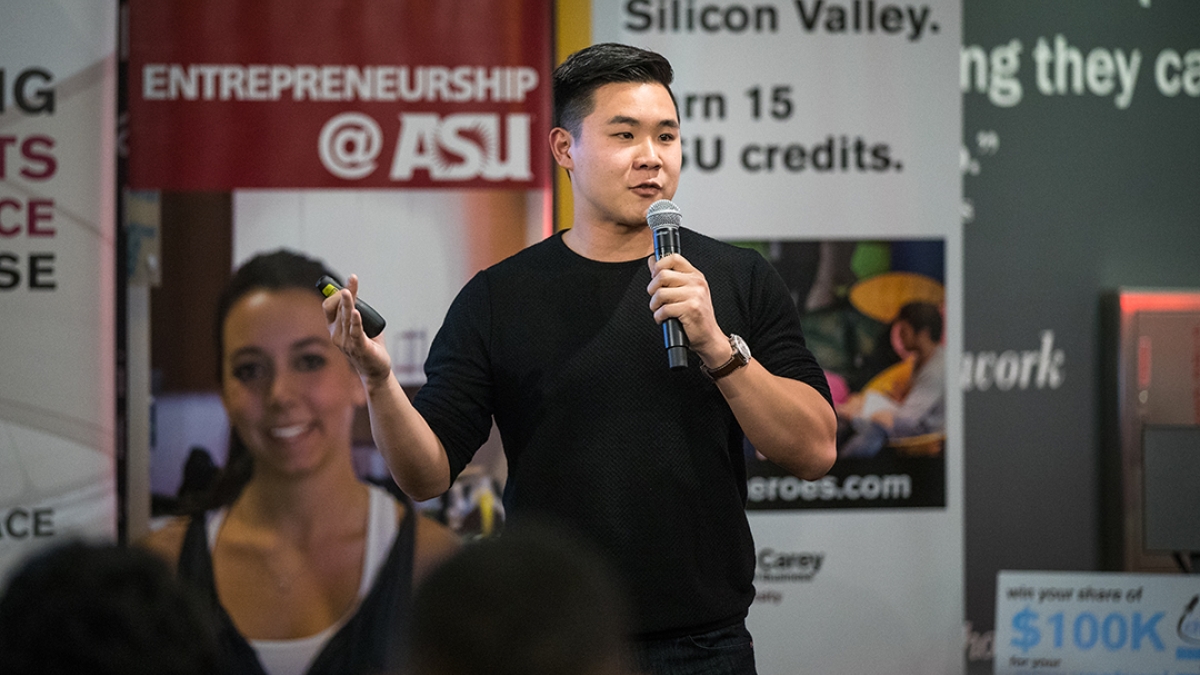Anaerobic digestion is a process that is gaining traction as a means of eliminating the world’s growing food waste problem by using microbes to break down organic materials. A notable benefit of the process is the production of methane, which can be used to produce electricity in the form of transportable hydrogen gas – perfect for use by the maritime and transportation sectors.
However, it is a time-consuming process with low yield rates and no provisions for carbon capture.
GELF Energy, an Arizona State University faculty startup venture, has redesigned the anaerobic digestion process with the development of a system called the Microbial Energy Device, which produces higher quality methane in one-tenth the time, at doubled efficiency, with nature-based carbon capture technology.
"GELF Energy is changing the way the world views wastewater treatment and transportation fuel,” says John Sabo, vice president of GELF Energy and director of the ByWater Institute at Tulane University who was previously director of Future H2O at ASU.
Now, thanks to ASU InvestU, a strategic initiative of ASU RealmSpark that connects investors to entrepreneurs within the ASU community and the education industry, GELF Energy is the first ASU startup available for crowdfunding investment.
InvestU has been successful in linking ASU-affiliated startups with accredited investors, and the group is now working to make these investment opportunities available to even more people within the ASU community.
“Early capital raising is one of the greatest challenges startups face and the reason why many of them fail,” says Samantha Bradley, managing director of RealmSpark. “In line with ASU’s mission of inclusivity and access, we are working with a leader in the crowdfunding space to increase access to capital for ASU startups and provide a platform for our community and alumni to invest in ASU research, technology and entrepreneurs with as little as $100.”
GELF Energy licensed the intellectual property behind the company from Skysong Innovations, ASU’s exclusive technology transfer and intellectual property management organization. The company also took a finalist spot in the 2021 Skysong Innovations Startup Challenge.
Through anaerobic digestion technology, GELF Energy can turn existing waste streams into high-quality fertilizer, ultrapure water and renewable energy.
This energy can be sold separately, or it can be combined with the ultrapure water to produce transportation-grade hydrogen. As industries transition away from fossil fuels, hydrogen fuel — which is energy-dense, carbon-free fuel — is poised to play a crucial role in the green economy.
This hydrogen can also be processed into ammonia. Maritime ports and vessels are embracing ammonia fuel as the preferred maritime fuel.
Bruce Rittmann, director of the Biodesign Swette Center for Environment Biotechnology at ASU, also serves as a scientific advisor for the company.
“We manage microorganisms to provide services for society, services to aid us directly or to aid us with interactions with the natural environment,” Rittmann says.
The technologies in development at GELF Energy could play a pivotal role in the ongoing energy transition. GELF Energy contributes to a suite of climate solutions, including the production of green hydrogen, the transformation of waste treatment and the curbing of methane emissions.
To learn more about GELF Energy and to invest, visit the InvestU crowdfunding page or the company's StartEngine crowdfunding page.
More Science and technology

Will this antibiotic work? ASU scientists develop rapid bacterial tests
Bacteria multiply at an astonishing rate, sometimes doubling in number in under four minutes. Imagine a doctor faced with a…

ASU researcher part of team discovering ways to fight drug-resistant bacteria
A new study published in the Science Advances journal featuring Arizona State University researchers has found…

ASU student researchers get early, hands-on experience in engineering research
Using computer science to aid endangered species reintroduction, enhance software engineering education and improve semiconductor…
